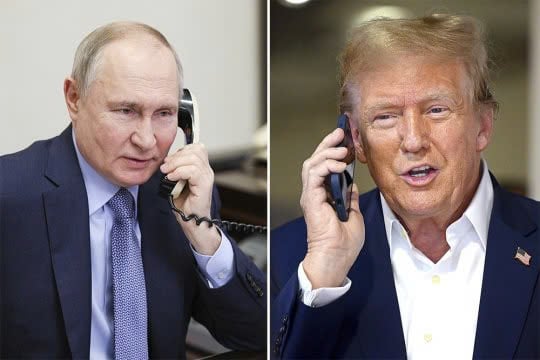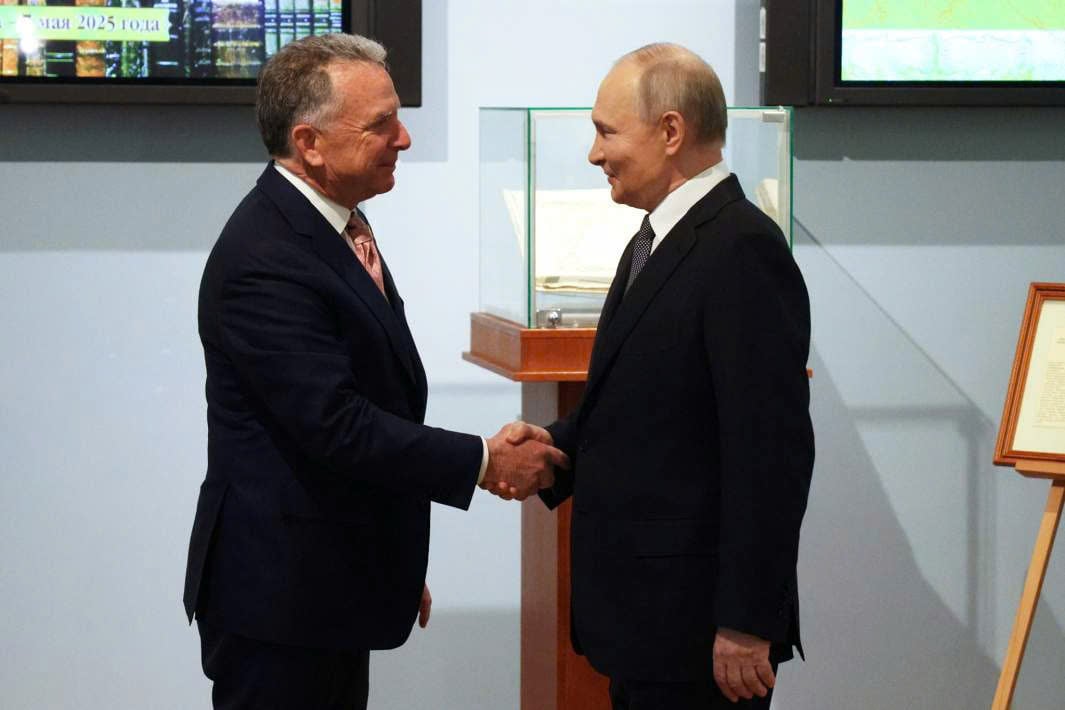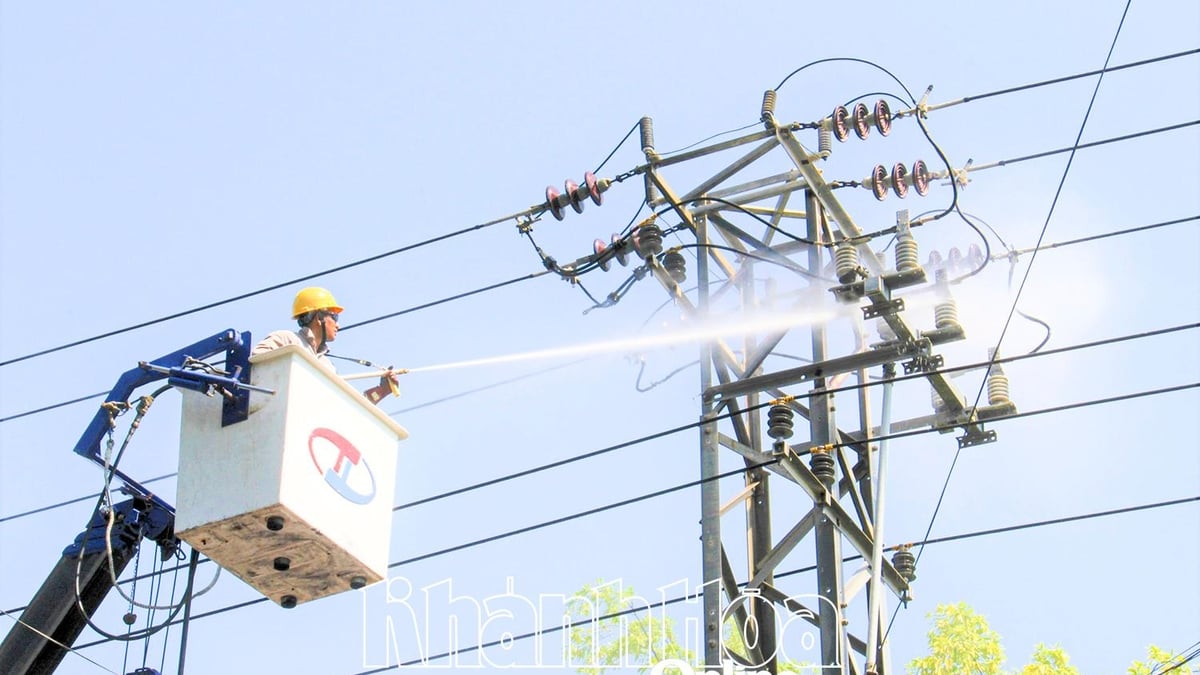Lessons from history
Some people believe that this is a period of calm between the two countries, similar to what happened in the late 1960s and 1970s. At that time, Russia and the United States both found themselves on the brink of a nuclear war, worried about the potential risks that could occur and began to look for a solution to narrow the confrontation, gradually resuming cooperation.
The reason for these comments is the similarities between the current situation and the situation in the late 1960s and 1970s, especially the risk of nuclear confrontation. If the previous one was the Cuban missile crisis in the early 1960s, now it is the risk of a direct clash between Russia and the United States related to the Ukraine issue (the Ukrainian army used long-range missiles of the United States and the West to attack deep into Russian territory, which Moscow considered as the direct involvement of the United States in the conflict, as well as the possibility of sending Western troops to the Ukrainian battlefield). Both the Russian and American governments in the past and present want to avoid a conventional direct confrontation, let alone the risk of a nuclear conflict.
On the contrary, some people also point out the differences between the current and previous Russia-US relations: the global ambitions of the Cold War superpowers are much higher than those of the 21st century.
In the past, the United States and the Soviet Union were locked in a struggle for survival for control of the world. Each country had enough resources (ideological, human, military , economic) to aspire to expand its influence on a global scale. And the purpose of détente was not to divide power in the world, but to bring the confrontation between the two countries, or more broadly, on a global scale, into a manageable channel.
Today, it seems that the great powers no longer have such ambitions, or if they do, they choose other ways to achieve their goals. Immediately after taking office, President Donald Trump, with his pragmatic policy of “making America rich again”, criticized the previous administration and argued that spending trillions of dollars to maintain global hegemony was unnecessary, and made some adjustments. President Trump, in his first term, withdrew the United States from the Iran nuclear deal, and now he has withdrawn from the Paris Agreement on climate change (January 20, 2025), reviewed aid packages for Ukraine and quickly wanted to end this crisis.
Most recently, President Trump’s reciprocal tariffs on imports into the United States could destroy one of the pillars of allies’ loyalty to Washington. The European Union (EU) is planning to reduce tariffs and impose price caps on electric vehicles from China, working with China to counter US tariffs.
On the Russian side, President Vladimir Putin has repeatedly asserted that Russia has no ambitions of global hegemony or control over the world. Instead, he often talks about protecting national interests, opposing outside interference, and moving towards a multipolar world - where there is not just one dominant superpower. Russia does not and does not intend to challenge the United States for control of the Middle East and other geopolitical regions - Russia just wants the United States to stay away from Russia and the post-Soviet space. That is, Russia's immediate periphery.
The key issue is still Ukraine
There is no denying the positive signs in Russia-US relations over the past two and a half months. Not only are there phone calls between the two leaders, direct contacts between the two countries ' diplomatic missions in Saudi Arabia, but there are also concrete and substantive cooperation activities. On April 8, a Russian spacecraft safely delivered American astronaut Jonathan Kim and two Russian cosmonauts to the International Space Station (ISS). Roscosmos affirmed that this is an important milestone in maintaining international cooperation in the space field, especially in the context of relations between the two countries continuing to be affected by geopolitical issues. This flight is not only a technical success, but also a testament to the long-term cooperation between space agencies, such as NASA and Roscosmos.
Next, Russia and the United States are currently discussing the possibility of cooperation in the field of rare earth mining and processing, a group of minerals that are important for the high-tech and defense industries. Moscow is ready to cooperate with US partners, including the public and private sectors, in rare earth mining projects in Russia and the Russian-controlled areas of Ukraine. This is clearly a positive signal and reflects the limited level of strategic trust between the two countries - not only in an area of clearly overlapping interests, but also in one of the most important areas of modern economy and future technology.
However, the key issue in Russia-US relations and the process of normalizing bilateral relations remains the Ukraine issue. As long as the Ukraine issue is not resolved, all efforts at Russia-US cooperation in other areas such as rare earths, space, arms control, etc. will be limited or easily broken. The Ukraine issue has become a measure of trust, as well as the most concrete manifestation of confrontation or reconciliation between the two powers.
At present, there are still profound differences in the views and positions between Russia and the United States on resolving the Ukraine issue, reflecting the long-standing strategic confrontation between the two countries. For Russia, the most urgent issue for continuing dialogue is to return Russia-US relations to a level based on the principles of equality, mutual respect, non-interference in internal affairs and mutually beneficial cooperation. And secondly, to ensure strategic stability, including the creation of a sustainable system of international relations based on international law and a common political settlement of global and regional crisis situations, including the crisis in Ukraine caused by Western countries.
Meanwhile, the US emphasizes the principle of respect for sovereignty and territorial integrity, affirming that Ukraine has the right to self-determination, including joining alliances such as NATO or the EU, even though at the moment even the US is not ready. Despite maintaining dialogue with Russia, the reality is that the US continues to maintain military aid packages for the Ukrainian army. It is this difference in approach that makes finding a common solution difficult, and the Ukraine conflict remains a problem without a satisfactory solution.
There is no denying that President Trump’s efforts to reset US-Russia relations have brought initial positive signals. However, whether cooperation agreements in the field of space, or even rare earths, can promote a common voice between the US and Russia in resolving the Ukraine issue remains a difficult question, with no answer yet.
Hung Anh (Contributor)
Source: https://baothanhhoa.vn/doi-thoai-nga-my-dau-xuoi-lieu-duoi-co-lot-245843.htm


























































![[Maritime News] Container shipping faces overcapacity that will last until 2028](https://vphoto.vietnam.vn/thumb/402x226/vietnam/resource/IMAGE/2025/7/30/6d35cbc6b0f643fd97f8aa2e9bc87aea)













































Comment (0)